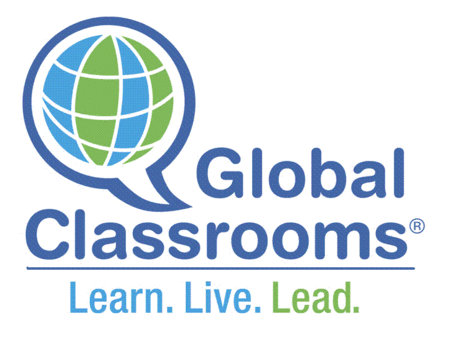What is Global Classrooms?
Global Classrooms is a Project in which 3rd year Bilingual Section students participate in a series of Model United Nations mock debate sessions where they discuss issues related to diplomacy and international relations— with a focus on the UN’s Millennium Development goals and recent Sustainability Development goals—using the United Nations’ protocol and procedures.
In order to do this, groups –known as delegations– of two/three students are created in order to represent a specific country; from that moment on, the students have to conduct research and learn as much as possible about not only the topic in question, but also their given country, since they must defend their nation´s point of view and position on the issue at a Conference. During the Conference, students must represent their country’s position and point of view while suggesting improvements, encouraging discussion and writing up resolutions with other delegations. These resolutions and recommendations are then debated and voted on by all participating countries.
Since all these activities are carried out in English, it is clear that taking part in this project has a huge impact on the students’ command of the English language: not only do they have to look for information in formal, technical texts written in English, they also have to write their own formal essay, prepare an opening speech, give presentations, and lead and participate in negotiations … all of which have to be done using only the English language.
I believe this project is extremely useful for students, because it allows them to acquire and practice skills that are extremely important in today’s world. Due to Global Classrooms, the students develop:
- Critical Thinking - Students grapple with real-world issues and put themselves in the shoes of the countries that they represent. Moreover, while actively listening to their peers during the debate, they have to learn how to determine what information is important and then form their own opinions on recommendations and suggested ideas.
- Research Skills - Students research general information on their assigned country, as well as the ways in which the country has been affected by the assigned global issue.
- Essay Writing - Students compose a Position Paper, which is an essay that concisely presents their country’s history, opinions, and suggestions for future action.
- Speech Writing - Students write Opening Speeches, representing their country’s opinion on and recommendations to resolve the issue at hand.
- Public Speaking - Students learn to share their ideas and deliver speeches in front of an audience. While practicing speeches, students learn how to make eye contact, modulate their voices, and control their nerves.
- Teamwork and Collaboration - Students learn how to work alongside peers, share ideas in a collaborative manner, and ultimately agree upon solutions to the issues and subtopics that committee is tasked to address.
- Professionalism - Many students will be entering a formal atmosphere for the first time, learning how to dress, behave and interact appropriately for in a formal setting.
- Leadership and How to Make a Difference - Students begin to understand the “power of one;” the idea that they themselves do have the power to make a difference in the world around them.
(Adapted from “The Fulbright ETA Handbook, 2016” and http://ieselpinarbilingue.wixsite.com/elpinar/global-classrooms).
